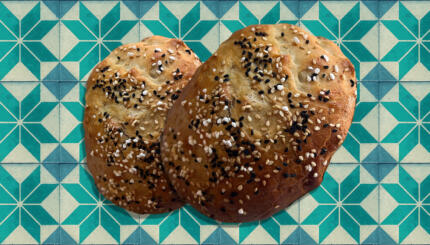This excerpt is reprinted with permission from Moments of Transcendence: Inspirational Readings for Yom Kippur, edited by Rabbi Dov Peretz Elkins. © 1992 Jason Aronson Inc.
Fasting the entire day of Yom Kippur until the blowing of the shofar is mandated only if one is healthy enough. Those who are sick are forbidden, according to Jewish law, to fast and thereby harm themselves. If one is not certain whether or not one’s health permits fasting, it is better to err on the side of health. That way, you can be certain to be here to fast next year. The decision to fast is left up to the individual, and not up to the physician, in Jewish law. If there is any doubt at all about fasting, Judaism places emphasis on health and life before almost any other mitzvah.
Rabbi Hayim of Brisk was noted to be very lenient in cases brought before him of whether or not to fast. When asked the reason for his leniency in permitting the sick to eat during Yom Kippur, he replied, "Not that I am lenient when it comes to Yom Kippur, but I am strict when it comes to saving a life."
For those who are well, you need not worry about the physical needs of your body on this day. Rabbi Hayim also has some advice for the healthy. He said, “Since the Yom Kippur fast is enjoined by the Torah, then fasting on that day must have its basis in the very nature of our being; and, therefore, this fasting nourishes the body the way food does on the other days!"
With your help, My Jewish Learning can provide endless opportunities for learning, connection and discovery.
shofar
Pronounced: sho-FAR or SHO-far, Origin: Hebrew, a ram’s horn that is sounded during the month of Elul, on Rosh Hashanah, and on Yom Kippur. It is mentioned numerous times in the Bible, in reference to its ceremonial use in the Temple and to its function as a signal-horn of war.
Yom Kippur
Pronounced: yohm KIPP-er, also yohm kee-PORE, Origin: Hebrew, The Day of Atonement, the holiest day on the Jewish calendar and, with Rosh Hashanah, one of the High Holidays.


